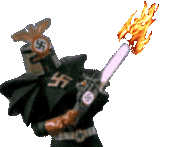
Furthermore, that the fantasy genre in general, and D&D in particular, is derived from Tolkien's creation is a fact.
No:
https://en.wikipedia.org/wiki/Sources_and_influences_on_the_development_of_Dungeons_&_Dragons
Gygax maintained that he was influenced very little by The Lord of the Rings, stating that he included these elements as a marketing move to draw on the popularity of the work.[7][8] However, in an interview in 2000, he acknowledged that Tolkien had a "strong impact".[9] According to the original Dungeon Masters Guide in "Appendix N: Inspirational and Educational Reading", the "most immediate influences" were the works of Robert E. Howard, Edgar Rice Burroughs, A. Merritt, H. P. Lovecraft, Fritz Leiber, L. Sprague de Camp, Fletcher Pratt, Roger Zelazny, and Michael Moorcock.[10] Subsequently, Gary Gygax listed the "major influences" as Robert E. Howard, L. Sprague de Camp, Fletcher Pratt, Fritz Leiber, Poul Anderson, A. Merritt, and H. P. Lovecraft, with "slightly lesser influence" from Roger Zelazny, Edgar Rice Burroughs, Michael Moorcock, Philip José Farmer, and others.
Gygax has repeatedly stated that the influence of Lord of the Rings on the development of D&D was minimal. He only acknowledged the "strong impact" in 2000, decades after the fact... and during these decades, everyone kept claiming that D&D and RPGs in general are primarily influenced/derived from Tolkien.
D&D carries a much heavier legacy of the pulp fantasy of the 30s and 40s, and the later sword & sorcery that developed from there. Conan, Elric, Fafhrd and the Grey Mouser, etc. Stories about adventurers who don't set out to save the world, but seek adventure for personal profit or because they got somehow involved in it and now have a personal stake in the matter. Stories that usually follow an episodic formula where the hero or heroine goes from place to place, encountering new dangers everywhere they go. The very structure of a D&D campaign is exactly like that, at least in its original shape. Heroes who want to gather GOLD and EXPERIENCE go and fight bad guys for a REWARD from the local authority, then they move on and seek adventure elsewhere. That's in stark contrast to Tolkien's unwilling heroes who start from humble beginnings and want to return to their peaceful life again once the adventure is over.
D&D heroes are professionals: fighters, wizards, rogues, clerics who trained to be adventurers. This is their profession, and they have personal motivations for their actions: they don't kill the dragon to save the world, they kill the dragon because there's a reward in it (and in original D&D, experience gain was directly tied to the amount of treasure you found). It's sword & sorcery through and through, not Tolkienian high fantasy.
Read this: https://www.amazon.de/-/en/Jeffro-Johnson-ebook/dp/B01MUB7WS6
The first two editions of Basic D&D lifted a lot of the monsters and races directly from Lord of the Rings. It was so bad that Tolkien's estate issued a cease and desist. That's why in the third edition of Basic had all the races and monster names changed. The caveat is that he also used all the other sources as per AD&D 1E DMG's Appendix N. He only hid the Tolkien influences due to the threat of litigation by Christopher Tolkien who was in control of the estate until his death.

















